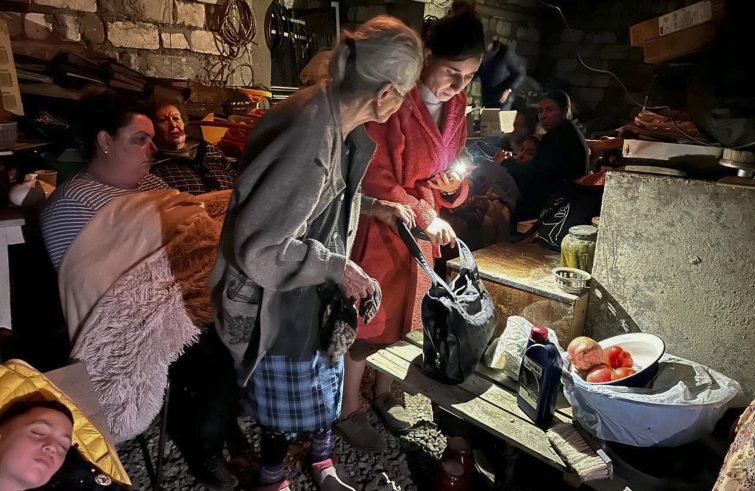
“Do not abandon us. Something terrible is happening. There have been deportations of Armenians to the Lachin Corridor by the Azerbaijani government, and then there have been attacks on our people. Many have died and many are missing because there is no communication. It’s a genocide.”
Reached by telephone by SIR, Msgr. Mikael Bassalé, Apostolic Administrator of the Armenian Rite Catholics of Eastern Europe, expressed his grave concern and launched an appeal following a military operation by Azerbaijan against the peaceful Armenian population of Artsakh (the Armenian name for Nagorno-Karabakh). This attack was followed by reports of genocidal violence, atrocities and crimes against humanity. Catholic sources in Armenia informed SIR that hundreds of Armenians had been abducted, killed and wounded.
The bishop said he feared that the attack in Nagorno-Karabakh was only the beginning of more attacks. “Yerevan is still unscathed, but the attack on Artsakh does not preclude the Azeris from attacking Armenia in the not too distant future,” he said, adding: “There is a strong possibility”, and should it happen, “it would be a catastrophe”. “I doubt that Armenia would be able to resist on its own, and I don’t think that our country will continue to exist in the face of an attack by Azerbaijan, especially now that Russia is involved in a war and Europe is engaged in addressing the situation in Ukraine.”
“No one will think of the Armenians”
“People feel they have been deceived,” the bishop continued. “They know that the country cannot cope on its own, no one feels safe here.” Bishop Bassale went on to explain that Armenia is closely linked to both Russia and Europe. “It cannot exist without these two realities. But the war in Ukraine has made things even more complicated, the people are divided. Some side with Russia, others with Europe. People don’t know who Armenia’s true friend is. One thing is clear: nobody cares about us”. For the bishop, the priority now is to ensure the safety of the people. “They need to be protected, and for that it is vital to send UN troops as soon as possible to bring people to a safe place.”
Unfortunately, sending humanitarian aid has proved difficult so far. “Humanitarian aids are not getting through. All access channels have been closed. There is no communication, and no mobile phone service.”
The ‘Lachin Corridor’, the only road connecting the Armenian enclave to the outside world, has been blocked by the Azerbaijani army for nine months. During this time, the population of around 120,000 has been cut off from all supplies. There is no food, no medicine, no electricity, no fuel. If someone falls ill, there is no way to reach a hospital in Armenia. Every day there are more violations of people’s most basic human rights. A delegation from the World Council of Churches (WCC), led by its general secretary Jerry Pillay, has just visited Armenia. Members of the delegation had a meeting with the head of the International Committee of the Red Cross delegation in Armenia, the WCC said. But as the delegation neared the entrance to the Lachin corridor, the military forces of Azerbaijan suddenly resumed shelling of Stepanakert and the delegation was unable to proceed. Speaking on behalf of the delegation, Secretary-General Pillay made an urgent appeal for “a cessation of the attack on Stepanakert”, and called on the Government of Azerbaijan to “engage in a genuine and meaningful dialogue with the Armenians of Nagorno-Karabakh/Artsakh for a just and lasting peace, in full respect of international humanitarian law and human rights.”









